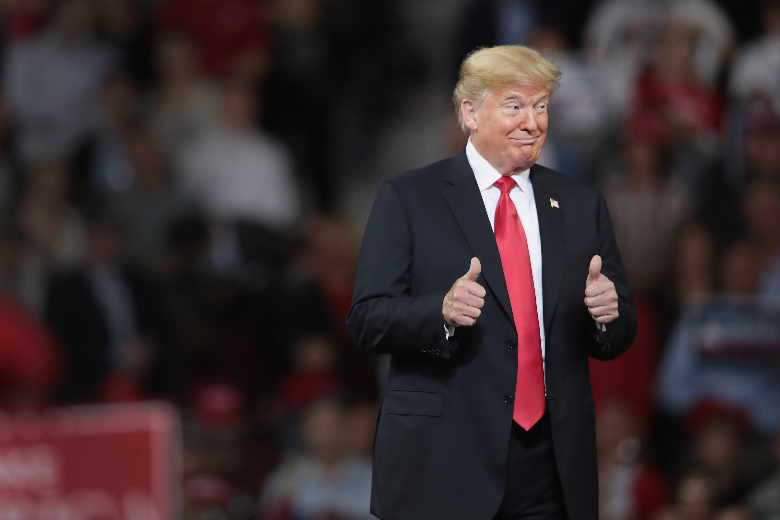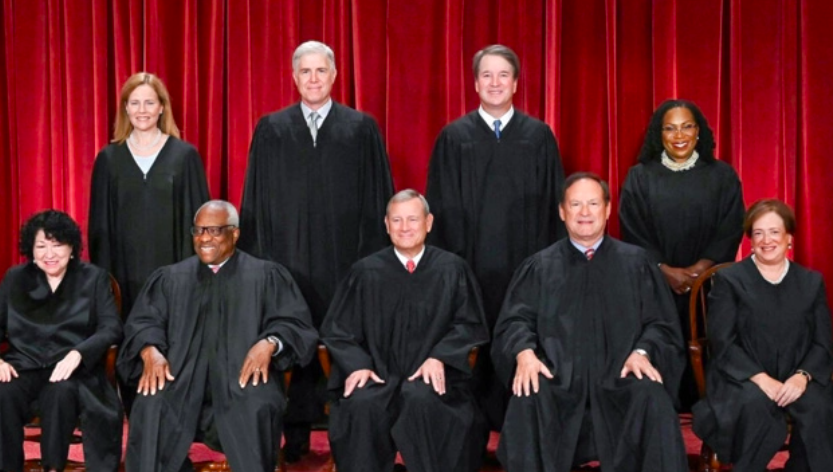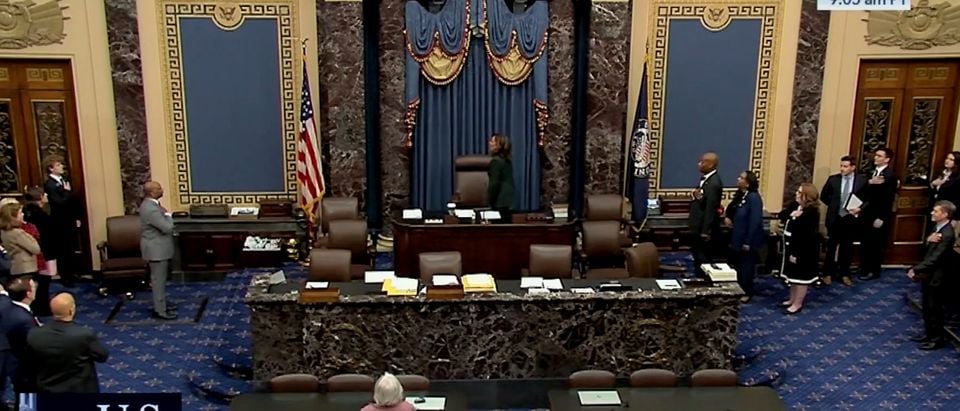President-elect Donald Trump is positioned to leave a lasting impact on the federal judiciary following a deal struck between Senate Republicans and Democrats. The agreement, reached just weeks before Trump’s inauguration, allows Democrats to push through a small number of district court nominees while preserving key appellate court vacancies for the incoming administration.
The Senate compromise marks a significant shift, setting Trump up to appoint dozens of judges across various levels of the judiciary. This opportunity promises to bolster his influence over the courts for years to come, a development with profound implications for the nation’s legal landscape.
New Podcast! Trump’s Nominees Rock DC – ET Talk
As Democrats sought to confirm as many judicial nominees as possible before the new administration, Republican senators moved to slow the process. A last-minute compromise was reached: Democrats agreed to halt votes on four circuit court nominees—key appellate positions—in exchange for advancing several district court judges.
A spokesperson for Senate Majority Leader Chuck Schumer confirmed the trade-off to Fox News, noting that it focused on pushing “more than triple the number of additional judges moving forward” compared to the four appellate judges left unconfirmed.
Judicial Crisis Network (JCN) President Carrie Severino highlighted the significance of this outcome. “When Trump comes into office, he’s going to have dozens more vacancies to fill,” she explained, adding that additional judges would likely retire or take senior status, further increasing the president-elect’s opportunities to shape the judiciary.
The vacancies left open by this agreement are particularly consequential. Circuit court judges, who preside over appeals and frequently have the final word in federal cases, hold more influence than their district court counterparts. The importance of these roles was emphasized by CAPAction’s Devon Ombres.
“Appellate judges are always going to be more important in our judicial system than district court judges,” Ombres noted. However, he cautioned that district court judges also wield considerable power, including the ability to issue nationwide injunctions that can halt federal policies.
Ombres predicted that judges appointed by President George W. Bush were more likely to take senior status, creating vacancies for Trump to fill. In contrast, judges appointed by Presidents Bill Clinton and Barack Obama are less likely to step aside during Trump’s term.
While the agreement provides Trump with a significant opportunity to reshape the judiciary, challenges remain. The Senate’s “blue slip” tradition, which allows senators to block judicial nominations in their home states, could make it more difficult to confirm judges in Democratic-leaning states.
Still, Trump is expected to prioritize filling vacancies where Republicans already hold a strong presence, such as the Eleventh Circuit. According to Severino, this strategy will allow Trump to “bolster where there is already strength.”
The judicial confirmation process will become even more favorable for Trump when Republicans assume control of the Senate in January. This shift will alter the power dynamics, making it easier for Trump to nominate and confirm judges.
Among the changes, longtime Senate Republican Leader Mitch McConnell is stepping down from his leadership role but will maintain significant influence. McConnell announced he will chair the Senate Appropriations Subcommittee on Defense and the Senate Rules Committee.
“America’s national security interests face the gravest array of threats since the Second World War,” McConnell said in a statement. “At this critical moment, a new Senate Republican majority has a responsibility to secure the future of U.S. leadership and primacy.”
The ability to appoint dozens of judges, including pivotal appellate positions, positions Trump to significantly influence the federal judiciary for decades. His judicial appointments could shape rulings on major issues ranging from abortion to gun rights and regulatory authority.
The significance of this opportunity cannot be overstated. Trump’s ability to leave his mark on the courts will outlast his presidency, affecting legal interpretations and decisions on contentious issues for generations.
While Democrats were able to secure a small number of district court confirmations before the transition, the broader implications of this Senate deal favor the incoming administration. For Trump, this marks the beginning of a judicial strategy that could redefine the nation’s legal landscape.
As Trump prepares to take office, his administration faces an unprecedented opportunity to reshape the courts. With a Republican-led Senate and dozens of judicial vacancies awaiting nominations, the president-elect stands poised to wield considerable influence over the nation’s judiciary system—an impact that could endure well beyond his tenure in the White House.



The judges Trump appoints should be grounded in CONSTITUTIONAL LAW which will shut the mouths of those left wing socialist commie demon democrats who are the ones ripping this country apart with their bigoted and cruel remarks about US the AMERICAN PEOPLE!!